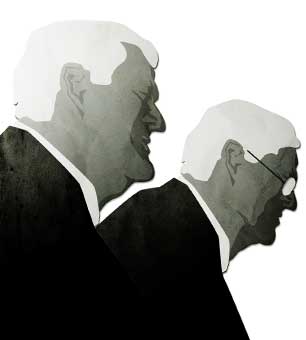Did you know that Truthout is a nonprofit and independently funded by readers like you? If you value what we do, please support our work with a donation.
The political action committee of Koch Industries Inc. — the energy company run by conservative billionaire brothers David and Charles Koch — is off to its fastest start ever for a federal election cycle.
KOCHPAC donated $559,000 to federal-level political candidates and committees during the first five months of the year, according to a Center for Public Integrity review of Federal Election Commission disclosures released this week.
That easily bests its output for the same time periods during previous election cycles: $387,500 in 2011, $274,500 in 2009 and $387,570 in 2007.
Such spending is notably aggressive for the nascent months of a two-year election cycle. Only a handful of the nation’s thousands of registered PACs, including perennial PAC powerhouses Honeywell and National Beer Wholesalers Association, have donated so much cash so early.
In May alone, KOCHPAC spread $145,000 to 61 different federal candidate committees and other PACs, filings show.
On the year, KOCHPAC has reported making donations to 167 state and federal candidates, parties and other PACs, according to the Center for Public Integrity’s analysis of FEC data.
That includes donating $15,000 apiece to the National Republican Senatorial Committee and National Republican Congressional Committee — while freezing out their two national Democratic counterparts.
Furthermore, KOCHPAC has donated the legal maximum of $10,000 to four GOP congressmen so far this year:
- Steve Southerland, R-Fla.
- Tim Huelskamp, R-Kan.
- Mike Coffman, R-Colo.
- Bill Cassidy, R-La., who is currently seeking the Republican Party’s nomination to challenge incumbent Democratic Sen. Mary Landrieu.
House Speaker John Boehner’s campaign has collected $5,000 from KOCHPAC, and House Majority Leader Eric Cantor’s leadership PAC has received the same amount.
The leadership PACs of Sens. Marco Rubio, R-Fla., and Rand Paul, R-Ky. — both potential 2016 GOP presidential hopefuls — each also collected $5,000 from KOCHPAC.
Notable state-level donations include $5,000 apiece to Republican Govs. Tom Corbett of Pennsylvania and Mary Fallin of Oklahoma, as well as $2,500 to Dewey Bartlett, the Republican mayor of Tulsa, who is squaring off against the city’s former Democratic mayor, Kathy Taylor, this November.
The PAC’s donations come from hundreds of company employees, who each may donate up to $5,000 per calendar year to KOCHPAC, which had nearly $1 million in cash reserves at the end of May.
A Koch Industries representative could not immediately be reached for comment, but spokesman Greg Guest in October explained the company’s PAC activity as such: “KOCHPAC support candidates based on their support for market-based policies and economic freedom, which benefits society as a whole. Our support is not based on party affiliation, and we support both Republicans and Democrats who support market-based policies and solutions.”
This election cycle, as has been the case for all election cycles, KOCHPAC has donated the vast majority of its money to identifiably Republican political committees, according to FEC records. Rep. Jim Matheson, D-Utah, for instance, did get $2,500 from the company’s PAC in March.
The Koch brothers’ political involvement is multi-faceted and broad. They rank among the country’s most prominent influencers of elections and policy.
Koch Industries, for example, has spent more than $62 million on federal lobbying efforts since 2008, records show.
David and Charles Koch, meanwhile, themselves pledged to contribute tens of millions of dollars during the 2012 election cycle to defeat President Barack Obama and his fellow Democrats.
But unlike other conservative mega-donors such as casino mogul Sheldon Adelson or the Kochs’ estranged brother, William Koch, David and Charles Koch have avoided giving money to super PACs.
These committees, which burst onto the political scene in 2010, may raise and spend unlimited amounts of money to independently support or oppose candidates, but must publicly disclose their donors. In contrast, politically active nonprofit groups, such as 501(c)(4) “social welfare” groups and 501(c)(6) trade associations, may keep their donors secret.
David and Charles Koch have heavily supported the 501(c)(4) nonprofit Americans for Prosperity, which ranked among the 2012 election’s biggest spenders. Because nonprofits aren’t required to disclose their donors, its unclear how much cash the Koch brothers actually spent.
The Koch brothers, through their various foundations, have also made large contributions to Donors Trust, an organization that in turn funds free-market lobbying groups, think tanks and news organizations, as the Center for Public Integrity has previously reported.
Speaking against the authoritarian crackdown
In the midst of a nationwide attack on civil liberties, Truthout urgently needs your help.
Journalism is a critical tool in the fight against Trump and his extremist agenda. The right wing knows this — that’s why they’ve taken over many legacy media publications.
But we won’t let truth be replaced by propaganda. As the Trump administration works to silence dissent, please support nonprofit independent journalism. Truthout is almost entirely funded by individual giving, so a one-time or monthly donation goes a long way. Click below to sustain our work.
